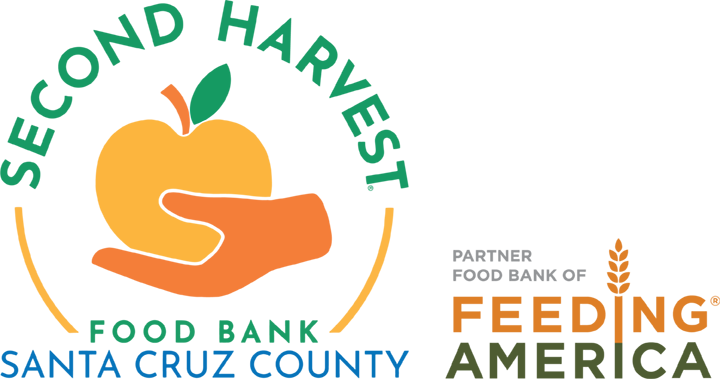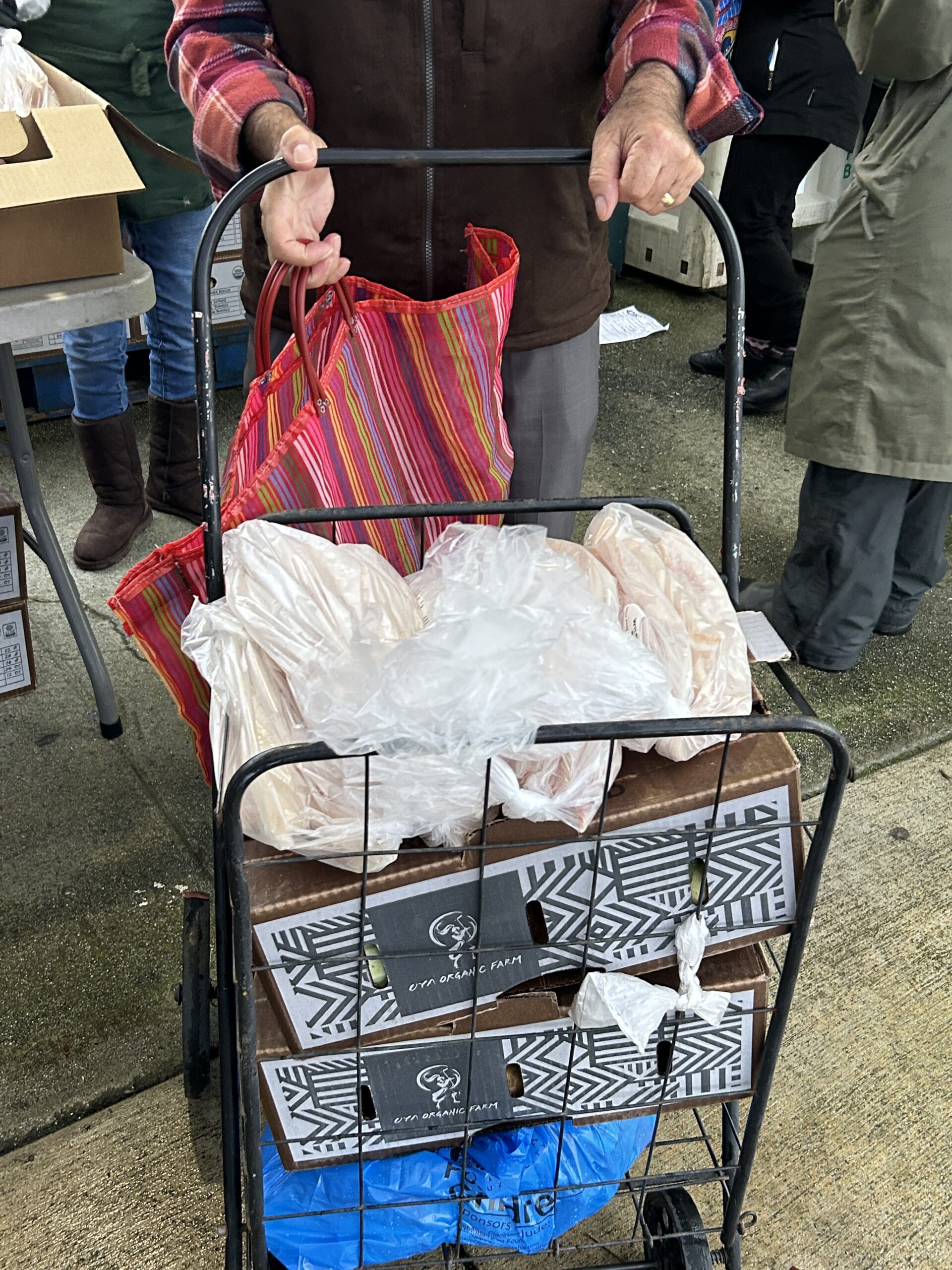Excerpt from Santa Cruz Sentinel
by Tara Fatemi Walker
In today’s culture, people unfortunately — and unrealistically — expect instant gratification and quick results. But cultivating long-term change, including improving inequities in our society, requires patience and hard work. Second Harvest Food Bank Santa Cruz County, no stranger to creating programs and services to nourish the local community, recently launched the Farmer Equity Program (FEP). This pioneering project is part of The Food Bank’s newly created sustainability initiative, Land & Sea, which also includes local nonprofit Monterey Bay Fisheries Trust (more on that later).
“We are very excited about FEP,” says Food Bank CEO Erica Padilla-Chavez. “We have always been committed to feeding people in need. Now we are accomplishing this while simultaneously fostering equity and social justice for BIPOC (Black, Indigenous and people of color) farmers.”
Last summer, The Food Bank decided it would help build equity by prioritizing the sourcing of BIPOC-owned produce from farms in Santa Cruz, Monterey, and San Benito counties. Emily Freed, supply chain director at Second Harvest, was tasked with finding local growers of color who were interested in selling to The Food Bank. They needed to be small-scale farms, but not so small that they couldn’t meet Second Harvest’s volume needs — especially as the food insecure population in the county has increased.
“I was able to succeed (in finding applicants to the Farmer Equity Program) using my pre-existing relationships with growers as well as my professional networks,” says Freed, whose experience includes working at Jacobs Farm/del Cabo for many years and earning a certificate in Ecological Horticulture from UC Santa Cruz. It is clear that the roots of farming and community run deep, and can grow connections that lead to people being both physically and spiritually fed.
The three farms participating in the initial Farmer Equity Program — all meeting the required qualifications including residing in an appropriate county — are Oya Organics, Luna’s Farm and Rancho Las Palmas. So how does the program work, exactly? From October 2023 through June 2024, Second Harvest is purchasing produce from these local farms and distributing the produce to people in need through two methods: through its partner agencies, and through direct Second Harvest-run distributions at sites like local schools. Luna’s Farm was the first farm to deliver in late October with pallets of organic butternut, kabocha, spaghetti and delicata squashes. Oya Organics was the next farm — with produce boxes — followed by Rancho Las Palmas with organic Brussels sprouts. Due to its work season, Oya Organics will be supplying produce only through early February. Luna’s and Rancho Las Palmas are participating through June.
Second Harvest is purchasing 400 weekly produce boxes (similar to CSA boxes) from Oya Organics, each featuring a variety of local, fresh organic fruit and vegetables. “Partnering with Second Harvest Food Bank to grow crops during the fall and winter months has been a great benefit to our farm,” says Marsha Sayuri Habib, owner/founder of Oya Organics. Because of the Farmer Equity Program, Oya was able to keep many staff members employed during the winter — which is normally a slow time. “We are grateful for this opportunity and are thrilled to grow local, organic and delicious produce for our neighbors, Santa Cruz County community members,” adds Habib.
Luna’s Farm is currently providing The Food Bank with organic produce including radishes, cilantro and peas. In the near future, there will be organic items like spring onions, green garlic and winter squash. “We are so glad to have this opportunity to share our food with different people,” says Antonio Luna, who owns Luna’s Farm and runs it with his family. “We grow high-quality produce, so we feel great doing this. Plus, it helps us continue running the farm this coming year.” Last year was a challenging one. Luna’s Farm got quite behind in its harvest, mostly due to a lot of cold weather that negatively affected the crops. “This Food Bank program came at a perfect time and we’re very grateful,” says Luna.
Second Harvest is currently utilizing organic Brussels sprouts and artichokes from Rancho Las Palmas. “We’re very happy that this opportunity came knocking on our door,” says Teresita Diaz, who operates Rancho Las Palmas with Maria Diaz and Juvenal and Rigoberto Cruz. “We really appreciate the work The Food Bank does,” she adds. “We share some of the same values; we always try to make healthy food available for our community.” Rancho Las Palmas regularly donates to a local elementary school and a community center. The farm members are grateful that Second Harvest launched the Farmer Equity Program. “They came up with ways to help smaller farmers, using a fair program that benefits us,” says Diaz.
The team at Second Harvest is happy with the Farmer Equity Program’s success so far and excited for its future. “I think this program has been financially impactful for the three farms,” says Freed. “All of them have repeatedly thanked The Food Bank for this opportunity. One of FEP’s goals was to infuse the local ag economy with local dollars, and that’s exactly what we’ve done.”
As previously mentioned, the Farmer Equity Program is part of Second Harvest’s Land & Sea initiative, which has goals like increasing locally sourced and sustainable produce and meat proteins that clients receive — which in turn, improves people’s health — and strengthening collaborations between The Food Bank and local partners.
Two of these partners, the Monterey Bay Fisheries Trust and Lusamerica Foods, recently joined Second Harvest to create unprecedented opportunities for local individuals and families in need. Last week, community members felt the impact of this partnership for the first time. At two distributions held at regular Food Bank sites — one at a North County school and one at a South County school — clients received local seafood (specifically frozen grenadier) in addition to produce — including some from the Farmer Equity Program.
Monterey Bay Fisheries Trust’s programs include a Community Seafood Program, launched in 2020. It purchases seafood from local fishermen and donates this to local food relief programs. The number of relief programs was formerly five; with this new Second Harvest partnership, there are six food relief organizations Monterey Bay Fisheries Trust works with. For last week’s distributions, Monterey Bay Fisheries Trust was the donor, and Lusamerica was the seafood supplier. Since its inception, the Community Seafood Program has provided over 34,000 nutritious seafood meals in Monterey and Santa Cruz counties.
“We are so excited to partner with Second Harvest Food Bank as part of our Community Seafood Program, and collaborate to bring fresh, nutritious seafood to those in our community who need it most, while also supporting our local fishing community,” says Melissa Mahoney, Monterey Bay Fisheries Trust’s executive director.
“We welcome (Monterey Bay Fisheries Trust) as a perfect partner for the sea aspect of our new initiative,” says Second Harvest’s Padilla-Chavez. “At The Food Bank, we are committed to improving the health of our community. I look forward to continuing to expand our collaborations with other strong local organizations to increase access to nutritious food. Everyone deserves to be well nourished.”

